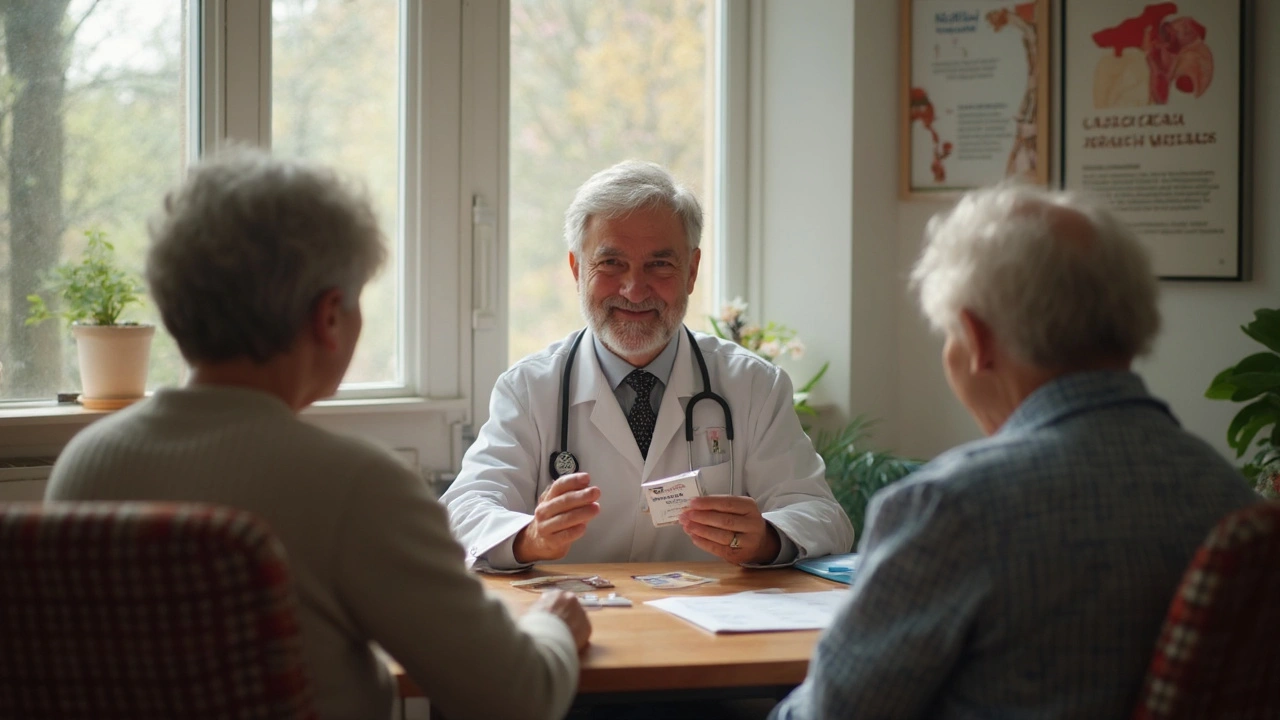Heart Medication Tips — Safe Use, Interactions & Daily Habits
Taking heart medicines the right way makes a big difference. Small habits — timing, checks, and knowing interactions — lower risk and improve results. This page gives clear, usable tips you can use today.
Quick daily habits
Keep a simple routine. Take meds at the same time every day, tie them to an existing habit (like breakfast), and use a pill box or phone alarm. If a pill says "take with food," do it; some drugs upset the stomach without a snack.
Carry a current medicine list. Include drug names, doses, and why you take them. That list helps emergency staff and any pharmacist you talk to when traveling or ordering online.
Store meds properly. Most heart medicines stay at room temperature in a dry place away from sunlight. Don’t leave pills in a hot car. For any drug that needs refrigeration, follow the pharmacy label exactly.
What to watch for & when to call your doctor
Know key side effects. For statins: new muscle pain, weakness, or dark urine — mention these immediately. For ACE inhibitors/ARBs: new cough, lightheadedness, or swelling of the face/lips needs urgent attention. For blood thinners: unexplained bleeding, large bruises, blood in urine or stool, or heavy nosebleeds require same-day contact.
Check labs on schedule. Expect a lipid panel 6–12 weeks after starting or changing a statin. If you’re on an ACE inhibitor or spironolactone, expect potassium and kidney checks soon after starting and periodically after that. Warfarin users need INR checks as advised — many other meds and antibiotics change INR.
Avoid certain drug combos. Don’t mix nitrates (isosorbide) with erectile dysfunction drugs like sildenafil — blood pressure can drop dangerously. Grapefruit or grapefruit juice can raise levels of some statins and calcium channel blockers; ask your prescriber about your specific medicine. Tell every doctor and pharmacist about all prescription and over-the-counter drugs, supplements, and herbal products you take.
Don’t stop drugs suddenly. Beta-blockers and some antiarrhythmics need tapering. Stopping these abruptly can cause rebound high blood pressure, palpitations, or chest pain. If you’re thinking of stopping, ask your prescriber for a plan.
Buying meds online? Use licensed pharmacies only. Look for a prescription requirement, clear company contact details, and reviews. Our site has guides on safe online buying for common heart medicines like benazepril and atorvastatin if you need more help.
Missed a dose? Follow the label: usually take it as soon as you remember unless it’s almost time for the next dose — then skip the missed one. Don’t double up unless your prescriber tells you to.
Finally, pair medicines with lifestyle steps. Small changes — consistent walking, cutting back on salt, and quitting smoking — boost drug benefits. If something feels off, call your healthcare team. Clear questions and timely checks beat guesswork every time.

